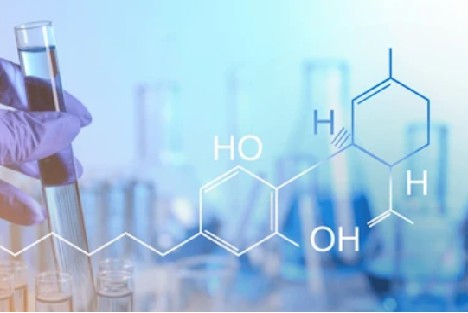Introduction

Pharmaceutical intermediates are compounds that are used in the production of active pharmaceutical ingredients (APIs). They can be either simple organic molecules or complex chemical compounds that undergo various chemical reactions to form the desired API. Pharmaceutical intermediates serve as key building blocks during the synthesis of drugs and play a vital role in the pharmaceutical industry, as they help ensure the quality, efficacy, and safety of the final drug product. They are also critical for drug development and research, allowing for the exploration of new drug candidates and the optimization of existing drug formulations.
Types of Intermediates
Common types of pharmaceutical intermediates are as follows:
- Amino acids and derivatives. Amino acids are the building blocks of proteins and are crucial in the synthesis of peptides and proteins. Pharmaceutical intermediates in this category include amino acid derivatives, peptide linkers, and modified amino acids used in drug development.
- Organic acids and esters. Organic acids and esters are important intermediates in the pharmaceutical industry, used in the synthesis of various drugs, vitamins, and other pharmaceutical products. Compounds such as acetic acid derivatives, citric acid derivatives, and malonic acid derivatives fall under this category.
- Alcohols and phenols. Alcohols and phenols are key pharmaceutical intermediates utilized in the production of various medications and cosmetic products. Examples of compounds in this category include benzyl alcohols, diols, and phenol derivatives.
- Halogen compounds. Halogen compounds are commonly used as intermediates in pharmaceutical synthesis due to their reactivity and selectivity in chemical reactions. These compounds play a critical role in the development of antibiotics, antiviral drugs, and other therapeutic agents.
- Heterocyclic compounds. Heterocyclic compounds consist of ring structures containing at least one heteroatom like nitrogen, oxygen, or sulfur. These intermediates are extensively used in drug design and synthesis, serving as the core structures for a wide range of pharmaceuticals including antibiotics, antivirals, and antifungal agents.
- Sulphur compounds. Sulphur compounds are important intermediates in various pharmaceutical processes, contributing to the synthesis of antibiotics, anti-inflammatory drugs, and other therapeutic agents. Examples of sulphur compounds include sulfonyl chlorides, thiol derivatives, and thioesters.
Applications of Intermediates
Here are some of the applications of pharmaceutical intermediates in the pharmaceutical industry:
- API Synthesis. Pharmaceutical intermediates are crucial in the synthesis of APIs, serving as starting materials or key components in the multistep chemical synthesis of APIs. They are often used to introduce specific functional groups, modify molecular structures, or enhance the potency and stability of the final drug product.
- Drug Development. Pharmaceutical intermediates are essential in the early stages of drug development. They can be used to create a library of compounds for screening and testing, allowing scientists to assess their efficacy, safety, and pharmacological properties before advancing to the next stage of drug development.
Our company offers a series of pharmaceutical intermediates, which play a crucial role in the synthesis of APIs for various medications. You can click on our product list for a detailed view. At the same time, we also offer product customization according to customer's detailed requirements. If you are interested in our products or have any questions or needs, please feel free to contact us. We will be happy to provide you with support and services.
It should be noted that our service is only used for research, not for clinical use.



